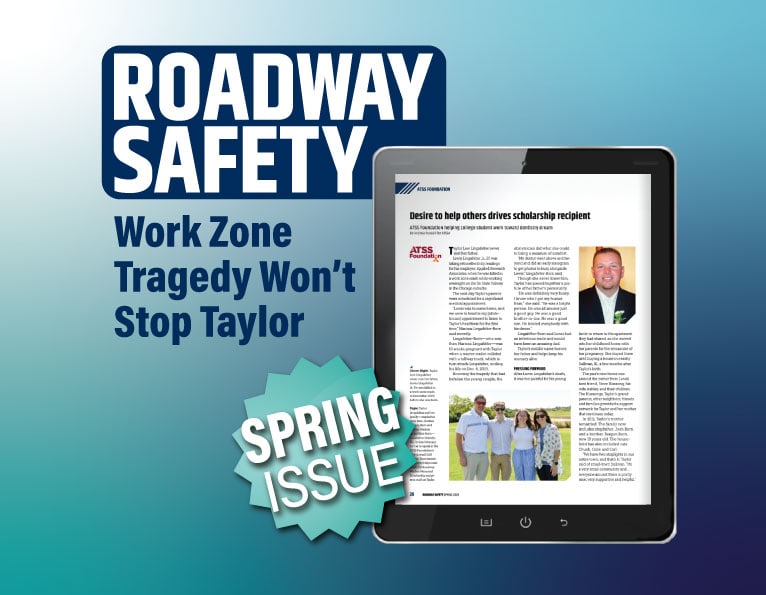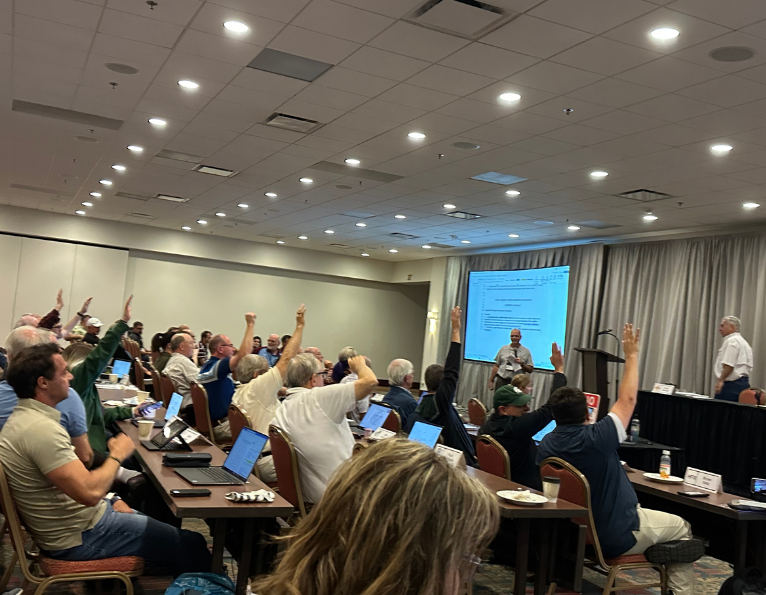Related News Articles
ATSSA’s 2025 New Products Rollout Report details the latest ideas for protecting workers, motorists and pedestrians
ATSSA’s 2025 New Products Rollout Report details the latest ideas for protecting workers, motorists and pedestrians NPRO entries offer cutting-edge…
Foundation provides community for scholarship recipient
Foundation provides community for scholarship recipient Student’s father killed in work zone crash before her birth Taylor Lingafelter can only…
NCUTCD Midyear Meeting provides update on MUTCD adoption
NCUTCD Midyear Meeting provides update on MUTCD adoption DES MOINES, Iowa – Eight states have completed the process of adopting…


